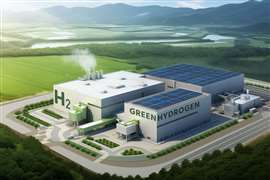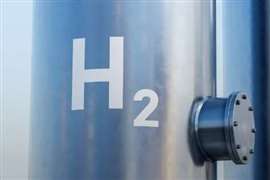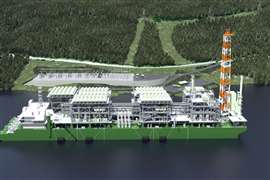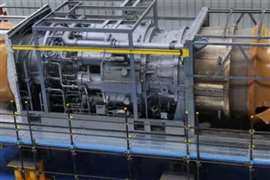Read this article in Français Deutsch Italiano Português Español
Hydrogen fuel adoption in U.S., Europe could cost over $1 trillion
March 19, 2024
At the CERAWeek by S&P Global energy conference happening in Houston, Texas, this week, Reuters reported that a Mitsubishi Heavy Industries executive said adopting hydrogen fuel in the U.S. and Europe will require infrastructure investments in excess of US$1 trillion.
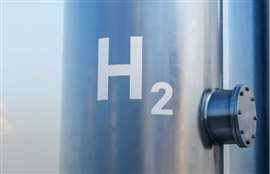 Photo: U.S. Dept. of Energy
Photo: U.S. Dept. of Energy
Emmanouil Kakaras, an executive vice president for Mitsubishi, said significant demand is required for a wholesale move to hydrogen, and it can only happen if there are investments in infrastructure to reduce the cost. “If you count the funding to bridge the gap, you will easily get to $1 trillion,” he said in the Reuters report.
Kakaras added that infrastructure investments in Europe would encourage wider adoption of hydrogen by 2035. When coupled with U.S. carbon capture and storage efforts, this approach could facilitate the energy transition, he said.
Both the European Union (EU) and the United States recently announced funding availabilities focused on expanding the hydrogen infrastructure.
On February 15, the European Commission announced it had approved as much as 6.9 billion euros (approx. US$7.5 billion) in funding to support the growth of hydrogen infrastructure via a project called Important Project of Common European Interest (IPCEI) Hy2Infra. The funding will come from seven member states — France, Germany, Italy, the Netherlands, Poland, Portugal and Slovakia — and is expected to attract an additional 5.4 billion euros (approx. US$5.9 billion) in private investment.
IPCEI Hy2Infra funding will be used to support 33 individual projects focused on the creation of large-scale electrolyzers to produce hydrogen, transmission and distribution pipelines, storage facilities and handling terminals. Completion of these projects is expected by 2029, the commission said.
In the U.S. on March 13, the Dept. of Energy (DOE) announced US$750 million in funding to support the adoption of hydrogen fuel. Funded by the Bipartisan Infrastructure Law, the funding will affect 52 projects intended to “help advance electrolysis technologies and improve manufacturing and recycling capabilities for clean hydrogen systems and components,” the DOE said in their announcement.
The department said that when coupled with other programs, it will move closer to achieving its hydrogen production cost goal of US$1/kg — the first of DOE’s Energy Earthshot Initiatives, called Hydrogen Shot. These programs include tax incentives provided by the Inflation Reduction Act as well as the Regional Clean Hydrogen Hubs (H2Hubs) program, which provides up to US$7 billion to establish as many as 10 clean hydrogen hubs across the country.
In the U.S. at present, all active hydrogen fueling stations and hydrogen fuel corridors are in California, according to DOE’s Alternative Fuels Data Center. U.S. Dept. of Transportation data indicates hydrogen fuel corridors are pending for 30 other states.
MAGAZINE
NEWSLETTER

CONNECT WITH THE TEAM







